Working as a lobbyist for a Swiss supermarket giant
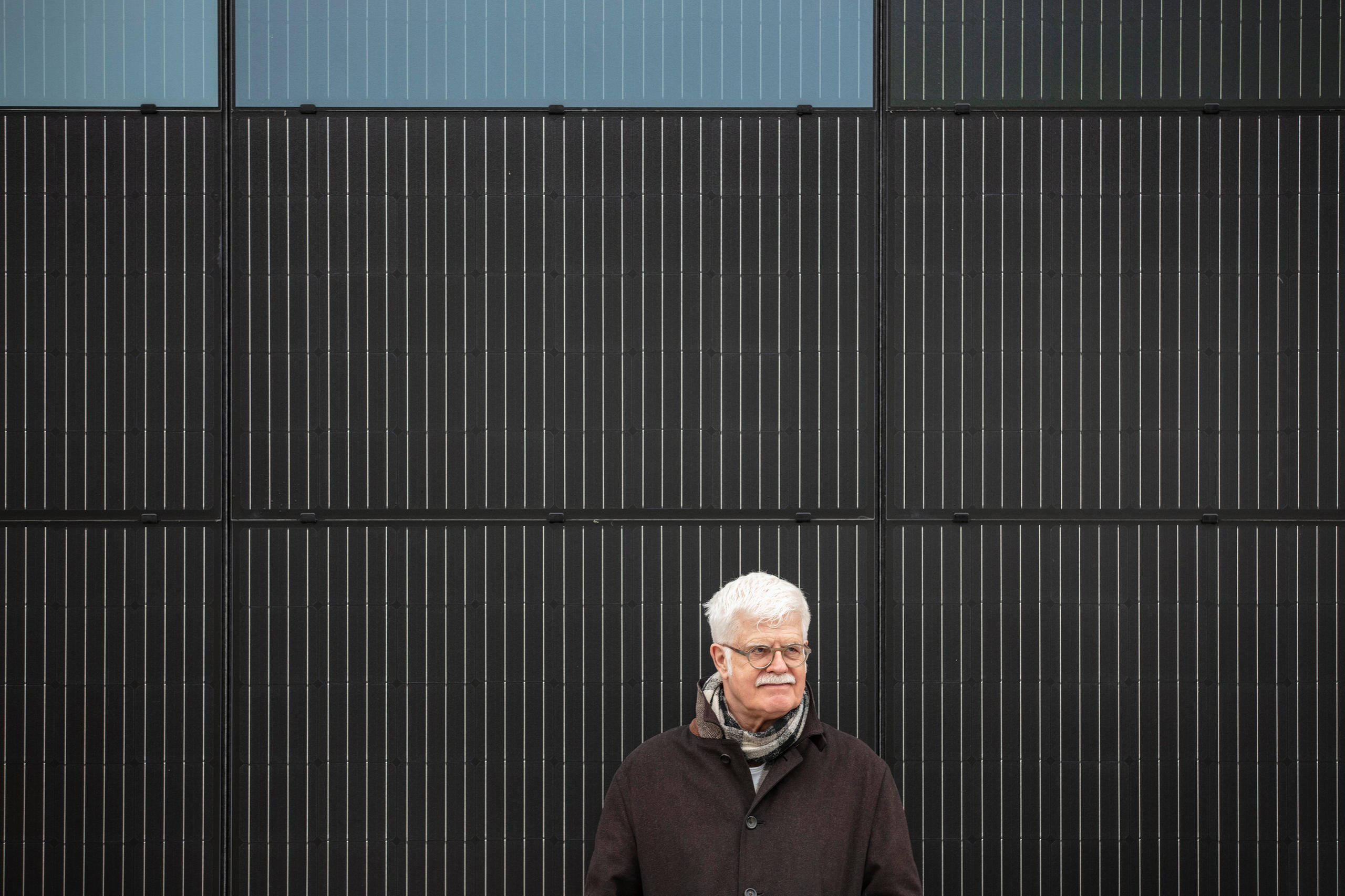
Martin Schläpfer was once the face of Swiss retailer Migros in the halls of parliament. He talks to SWI swissinfo.ch about the values the group’s founder represented and the secrets to successful lobbying.
Are you a “Migros child” or a “Coop child”? In Switzerland this question is laden with meaning. It refers to where the family does its weekly shopping, but not just: identification with one of the country’s main supermarket chains runs deep. Where you shop is a matter of faith.
Martin Schläpfer, born in 1955, grew up next to a Migros. When he was a child, the retailer’s founder, Gottlieb Duttweiler, was often a topic of family conversation.
“For as long as I can remember, I knew that ‘Dutti’ was not only a brilliant businessman,” says Schläpfer, “but also a man with a political agenda and ideas about what he wanted to change in this country.”
Coop and Migros are both cooperatives and thus rooted in the population millions of times over. More than a quarter of the Swiss population are Migros members. Membership is free. Coop has even slightly more members, although membership costs CHF10 ($10.80) a year.
Serving Migros in the federal parliament
Schläpfer worked for Migros – but not at the supermarket checkout. From 2003 to 2018, he was a lobbyist for Migros inside the federal parliament and the last of his kind: a “Migros man”. The retail group, which used to have its say in Swiss politics with its own party, no longer sends lobbyists to parliament.
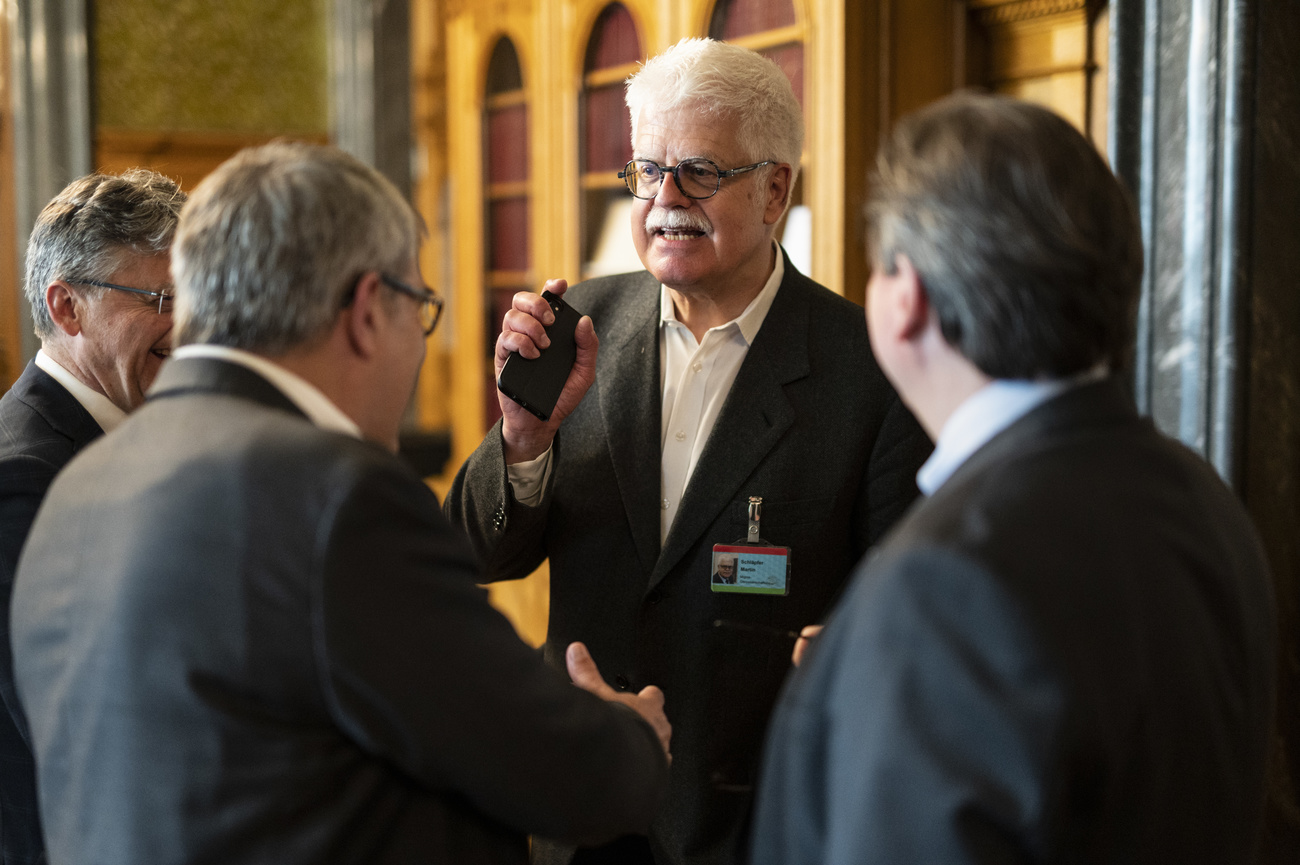
Over coffee and biscuits, Schläpfer recalls his days of defending the company’s interests in politics.
SWI swissinfo.ch: How did you proceed when you wanted to lobby for an issue?
Martin Schläpfer: It was quite straightforward, really. Today I lecture on politics and lobbying. A lot of it comes down to political intuition and experience. It does make a difference, of course, whether you are dealing with shop opening hours or agriculture, but to a certain extent there is a textbook procedure.
SWI: What was this procedure?
M.S.: The first question was whether the government was for or against a given issue. The method is completely different if you have the backing of the government and the administration or you don’t.
SWI: Were there matters that you were able to push through against the will of the government?
M.S.: Yes, parallel imports – that is, the liberalisation of goods imports. On this we stood united with consumer protection groups and prevailed against Justice Minister Christoph Blocher. Migros is an incredibly strong brand. It has more clout than a trade association. If Migros wants something, then the tabloid media always takes it up immediately – unlike for brands that are less well known.
Migros regularly tops rankings of the most popular brands in Switzerland. In 2023, however, it slipped to second place. But the following is as true today as it was in the past: Migros creates identity. Its defining colour is orange. The Migros magazine boasts relatively high circulation numbers, and customers discuss the quality of frozen seafood or chestnut yoghurts on the “Migipedia” platform.
Migros is one of Switzerland’s largest employers: 100,000 people from 170 different countries work for the group, the vast majority of them in Switzerland. In terms of sales, it hit an all-time record in 2022: CHF30.1 billion ($32.1 billion) were generated in the supermarkets and by the group’s branches in the travel, catering and health sectors.
Alcohol-free shops
Since his retirement, Schläpfer has not left Migros behind entirely. His loyalty is not to today’s company, but to the ideals that he associates with Migros.
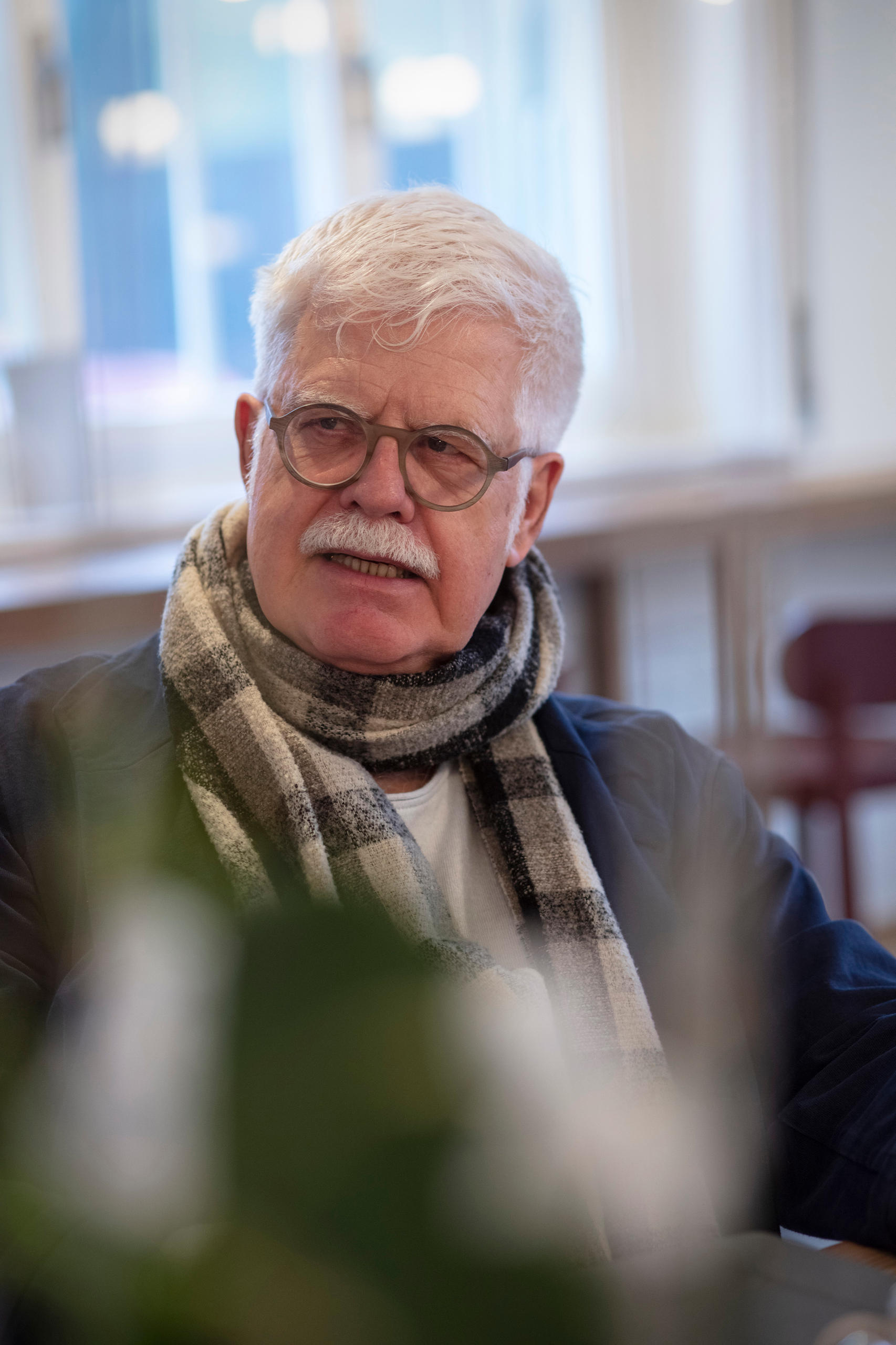
M.S.: In 2003, I was confident that Migros – in the spirit of its founder – would renew its commitment to the interests of consumers. Of course, we did not try to interpret Duttweiler as theologians do the Bible, but he did represent clear values.
SWI: What were those values?
M.S.: Above all the ban on alcohol. Migros still allocates a percentage of its annual turnover to cultural and social projects. Its political commitment is no longer so deeply entrenched today. The outcome of the vote on alcohol shows that Dutti’s core message is now more present in the cooperative base than in the company’s management.
The ban on the sale of alcohol has been enshrined in Migros’ statutes since 1928. When the group’s leadership wanted to start selling alcohol in its supermarkets in 2022, the roughly 2.3 million Migros cooperative members were asked to vote on the issue.
Together with other former executives, Schläpfer launched a campaign against the plan: he did not want to see any alcohol on Migros’ shelves. The vast majority of the 630,000 cooperative members who eventually cast a vote felt the same way.
Once the outcome was known, Swiss media outlets proclaimed: “The vote was the biggest PR coup of the year.” The cooperative had successfully attracted people’s attention to Migros, they wrote, and the high voter participation had strengthened the company.
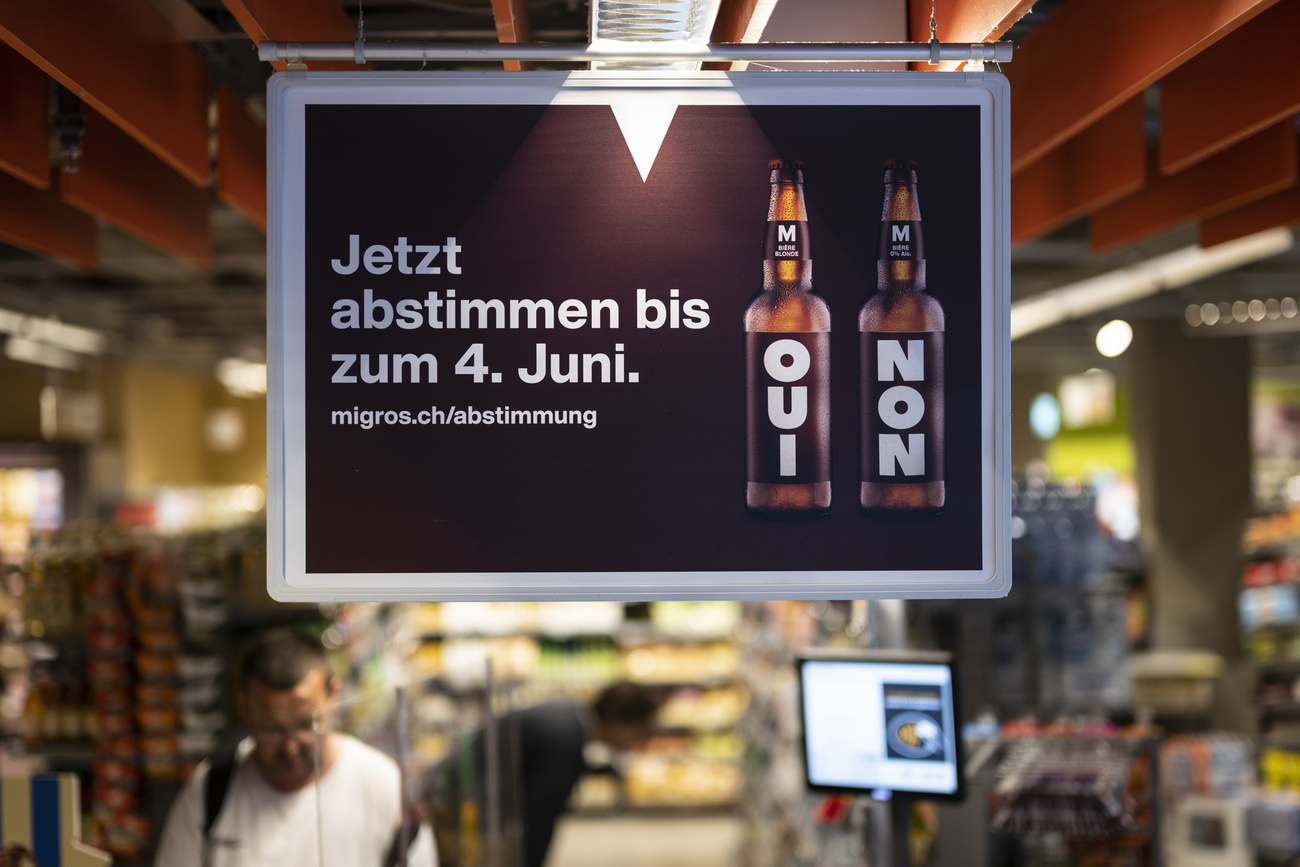
More
Swiss retail giant Migros votes to remain alcohol-free
Schläpfer, meanwhile, does not regard it as a PR coup.
M.S.: The vote was no democracy test, contrary to what the Migros leadership said. They had material interests. In the summer, Migros sells proportionally less meat than its competitors. Customers buying supplies for barbecues gravitate to shops that also sell alcohol. The Migros management failed with its project.
SWI: The discount chain Denner belongs to Migros, and it sells alcohol. So why does it matter that Migros itself does not sell alcohol, if it makes money from it anyway?
M.S.: The over 600 Migros supermarkets are alcohol-free. This is also important for people with an addiction. They can be sure that they will not come across any alcohol when they’re shopping at Migros.
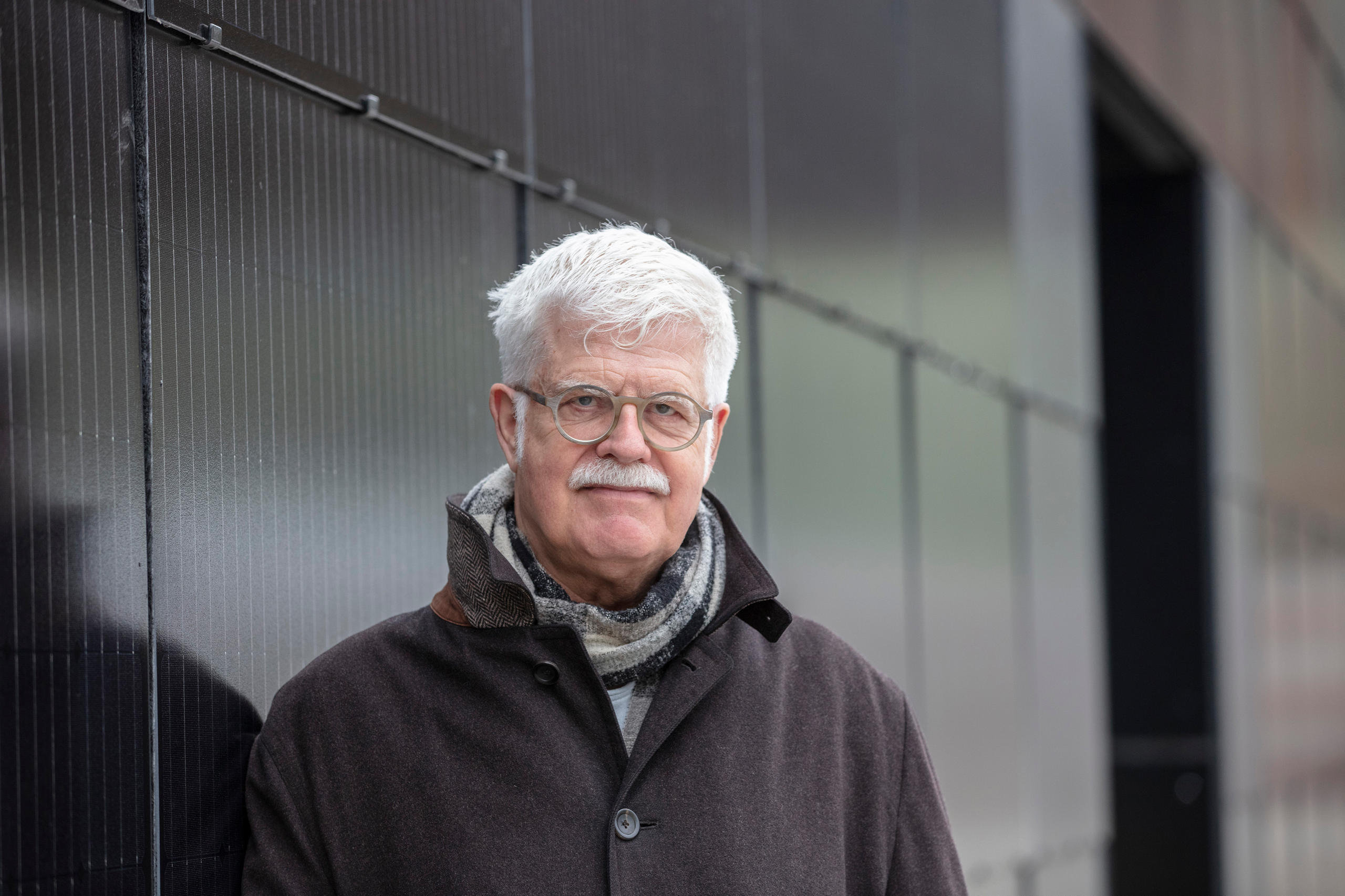
Business ties with Azerbaijan
Migros is sometimes accused of hypocrisy because of the alcohol sold at Denner. The group is also regularly criticised for other reasons, for instance because its petrol station shops, known as Migrolino, also sell alcohol. But the main issue is the business deal they have with a dictatorship.
In all 60 Migrolino shops are operated under a franchise agreement by the Azerbaijani state-owned company Socar. Moderate and left-wing politicians in the Swiss parliament have long questioned whether Migrolino sales are not helping to finance Azerbaijan’s aggression against Armenians.
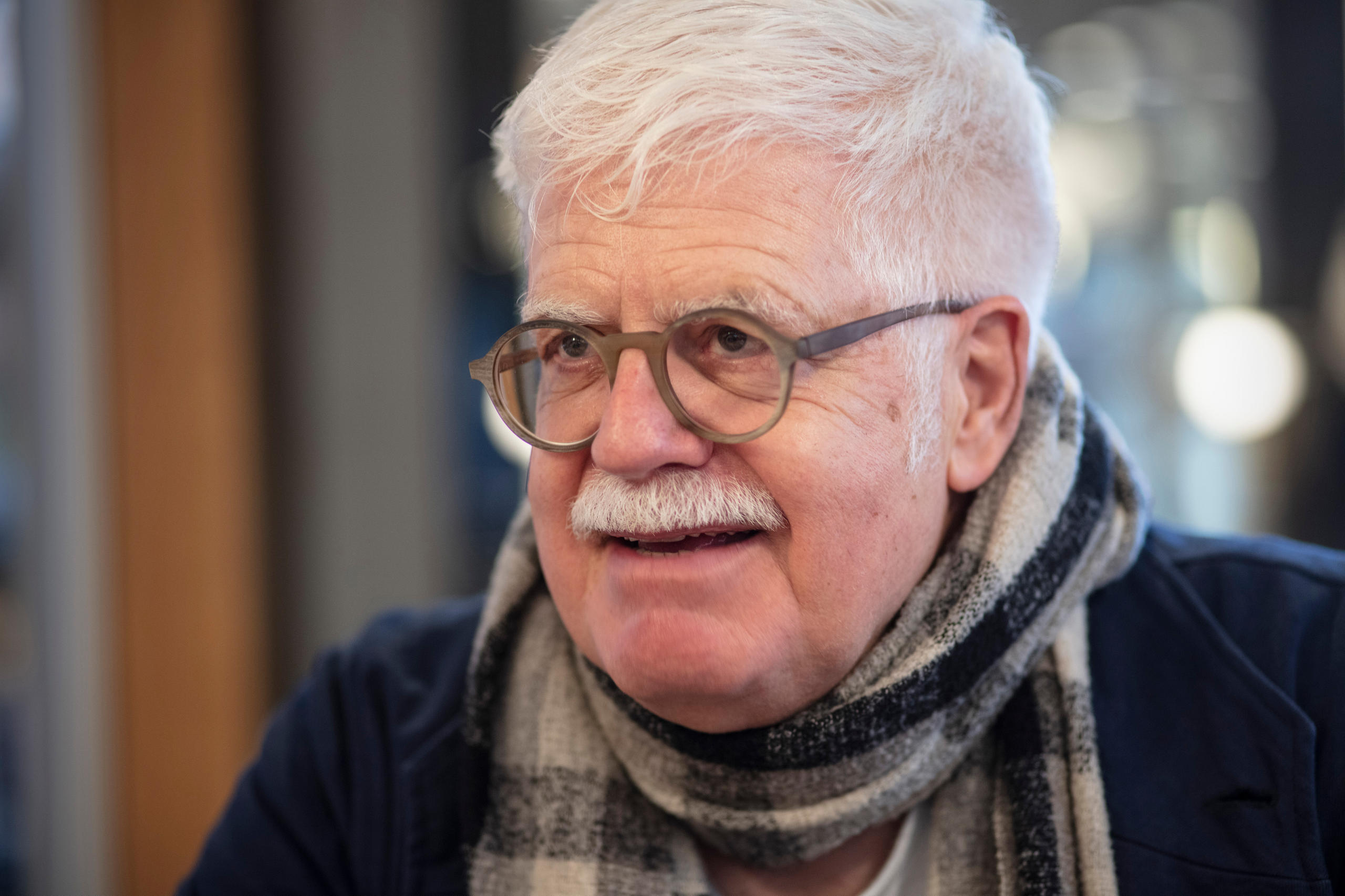
Schläpfer declines to comment on this. However, he sees it as a disadvantage for Migros that it no longer has someone representing its interests in parliament.
M.S.: In lobbying, the informal aspect is extremely important. It is not the same as sending e-mails.
SWI: Because e-mails often become public?
M.S.: Yes, but also because of the sheer volume. Why should a party president with 200 unopened e-mails bother opening the 201st?
SWI: Did you ever lose your temper?
M.S.: Definitely, but only in isolated cases – and also with farmers. But, generally, we would call a meeting and talk things over, including with the agricultural sector, which has long been in conflict with Migros. That’s what a cooperative is all about. It means being able to talk to the different stakeholders. The group’s social standing is also linkedto its cooperative structure. People can place their demands there. Migros is quite simply not a capitalist entity.
SWI: What do you mean by “not capitalist”?
M.S.: It is not a limited company that primarily serves its shareholders.
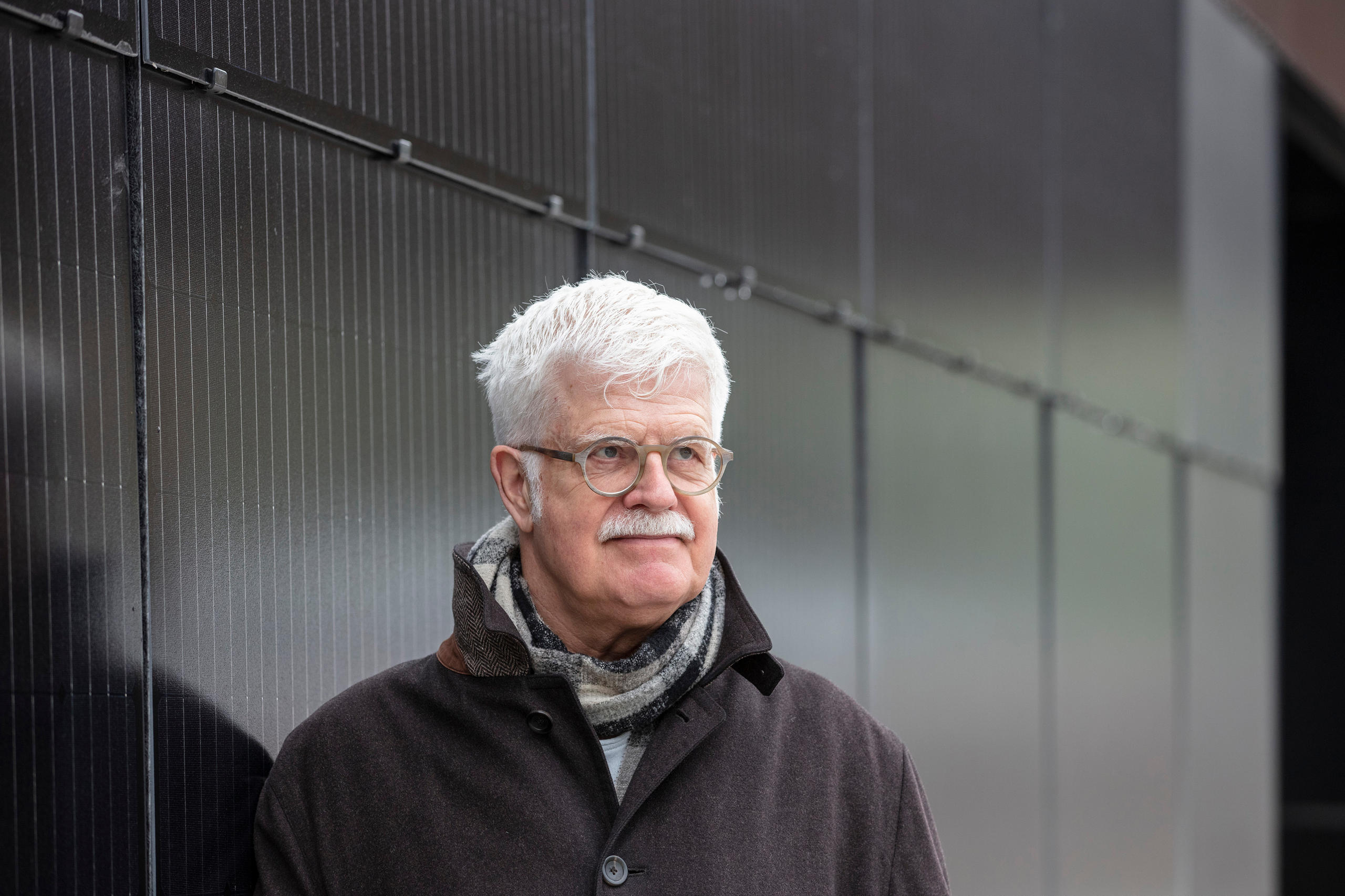
SWI: Migros makes a profit nonetheless – from its customers and the gap between retail prices and farm prices.
M.S.: The difference is that all members have a vote. In a limited company, a single person can own 51% and decide everything. A limited company is ideologically charged as a symbol of capitalism. The organisational form of capitalism is shares.
Being a cooperative comes with obligations. During the Covid-19 pandemic, Migros founder Dutti would have launched a scheme to help those in greatest need. Migros should have done something during the crisis. That is my opinion.
SWI: With today’s inflation, should Migros not do something for the farmers?
M.S.: I don’t know that the farmers are that poor. This should be looked into again more closely.
In 2025, Migros will celebrate its centenary. How it plans to mark this anniversary and promote its identity is as yet unknown.
Edited by David Eugster. Adapted from German by Julia Bassam/gw
More

In compliance with the JTI standards
More: SWI swissinfo.ch certified by the Journalism Trust Initiative

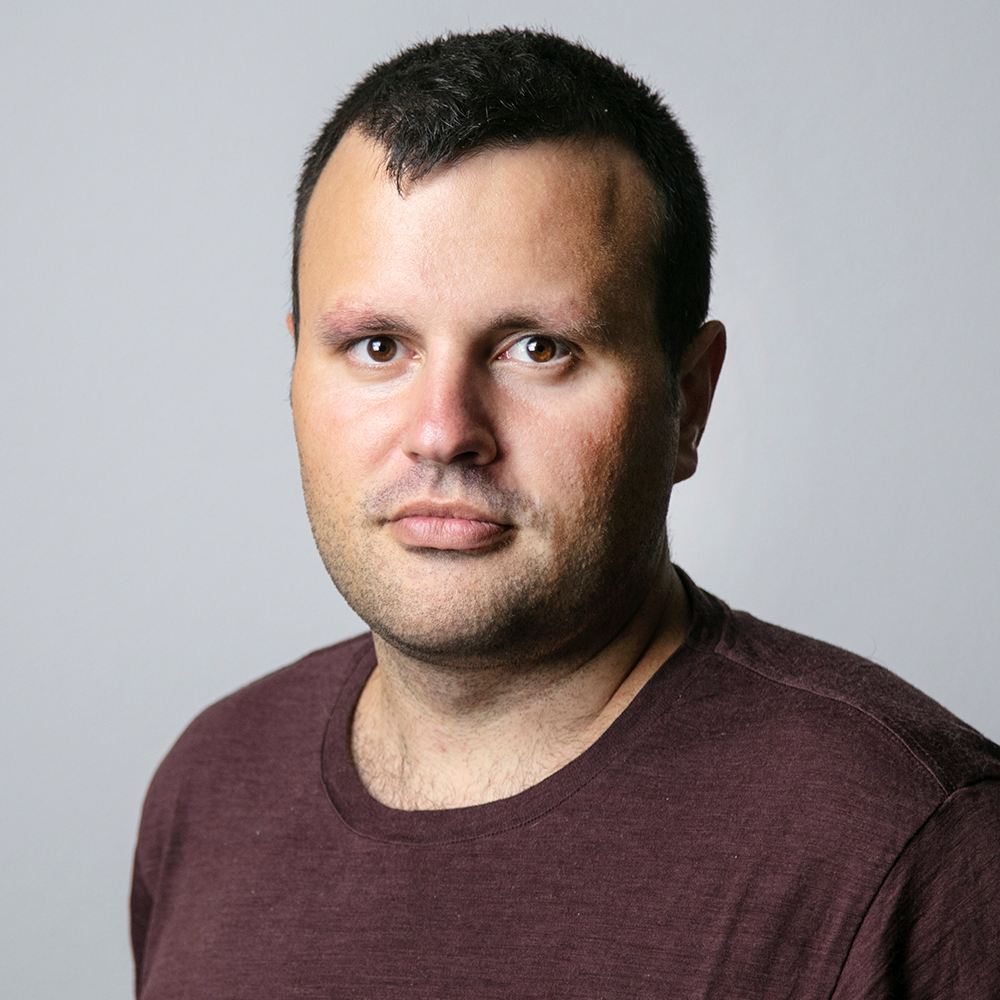
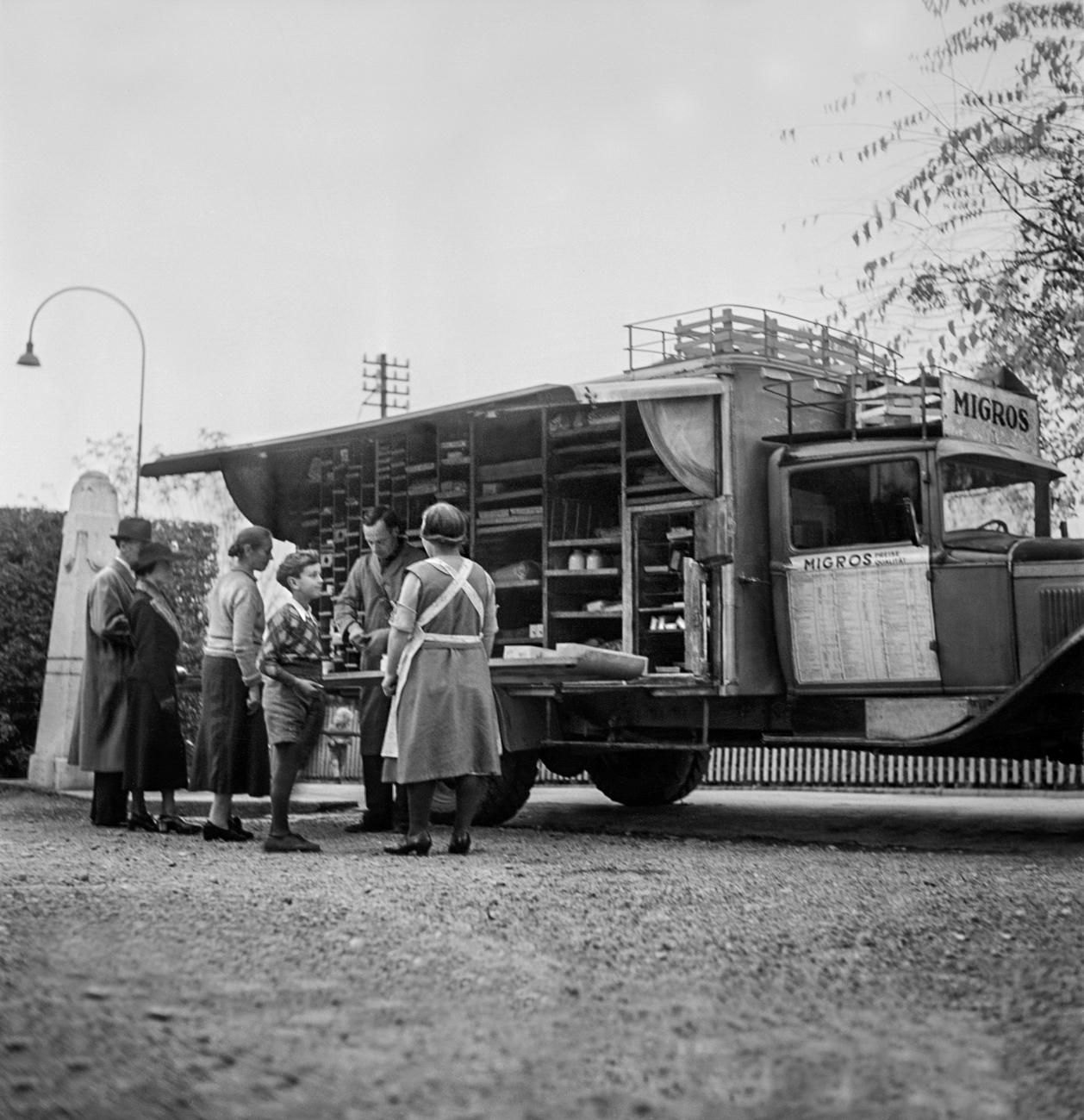
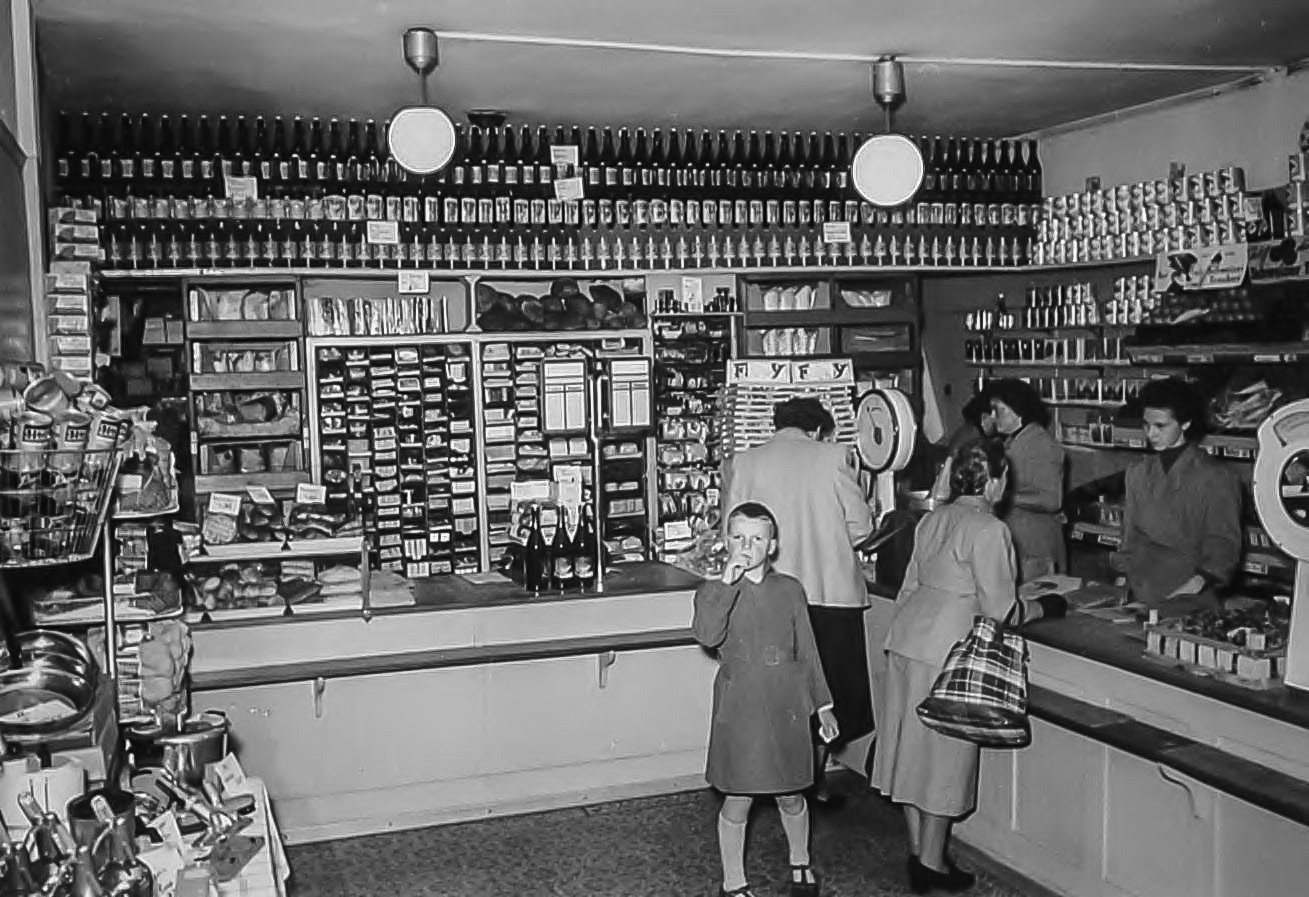
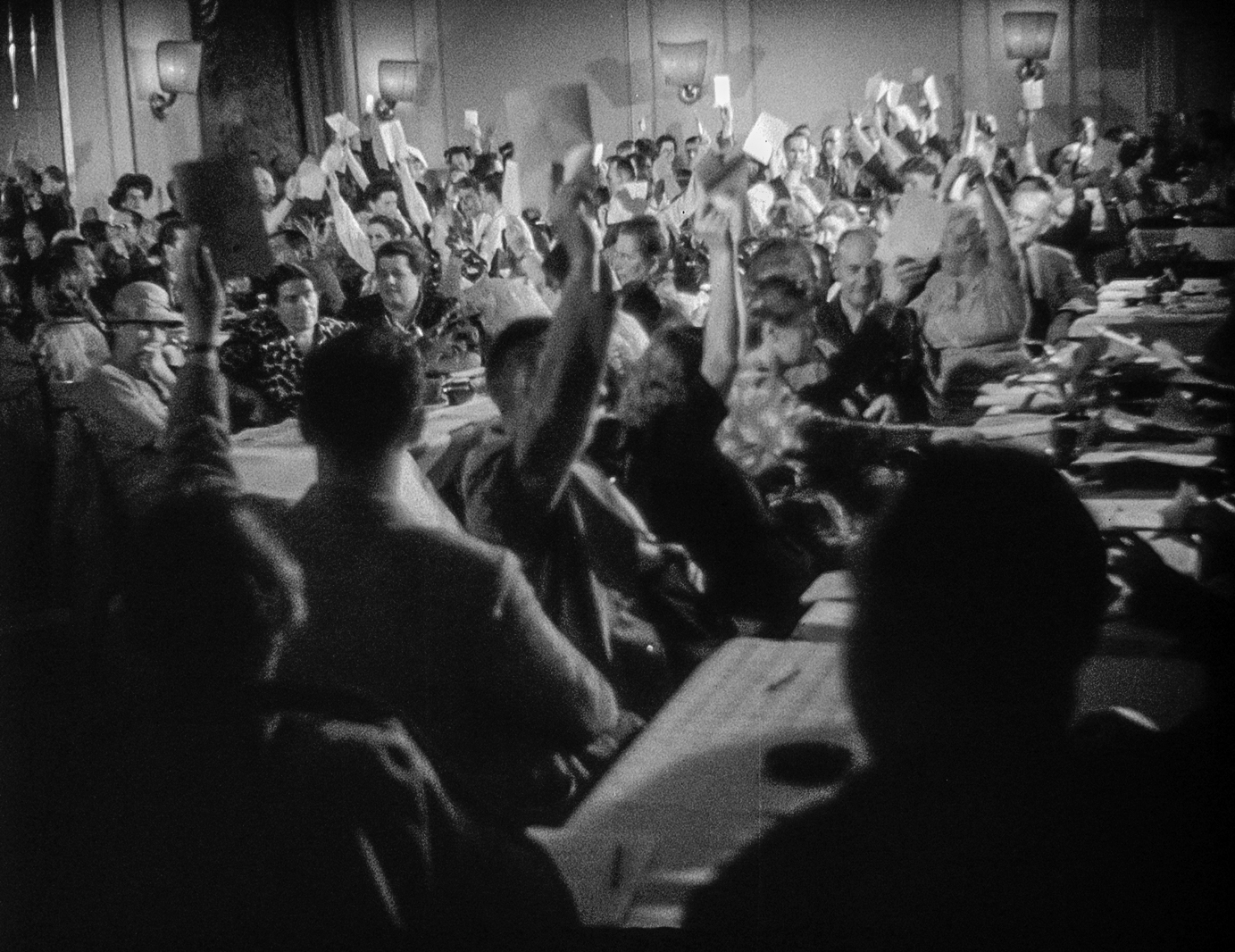
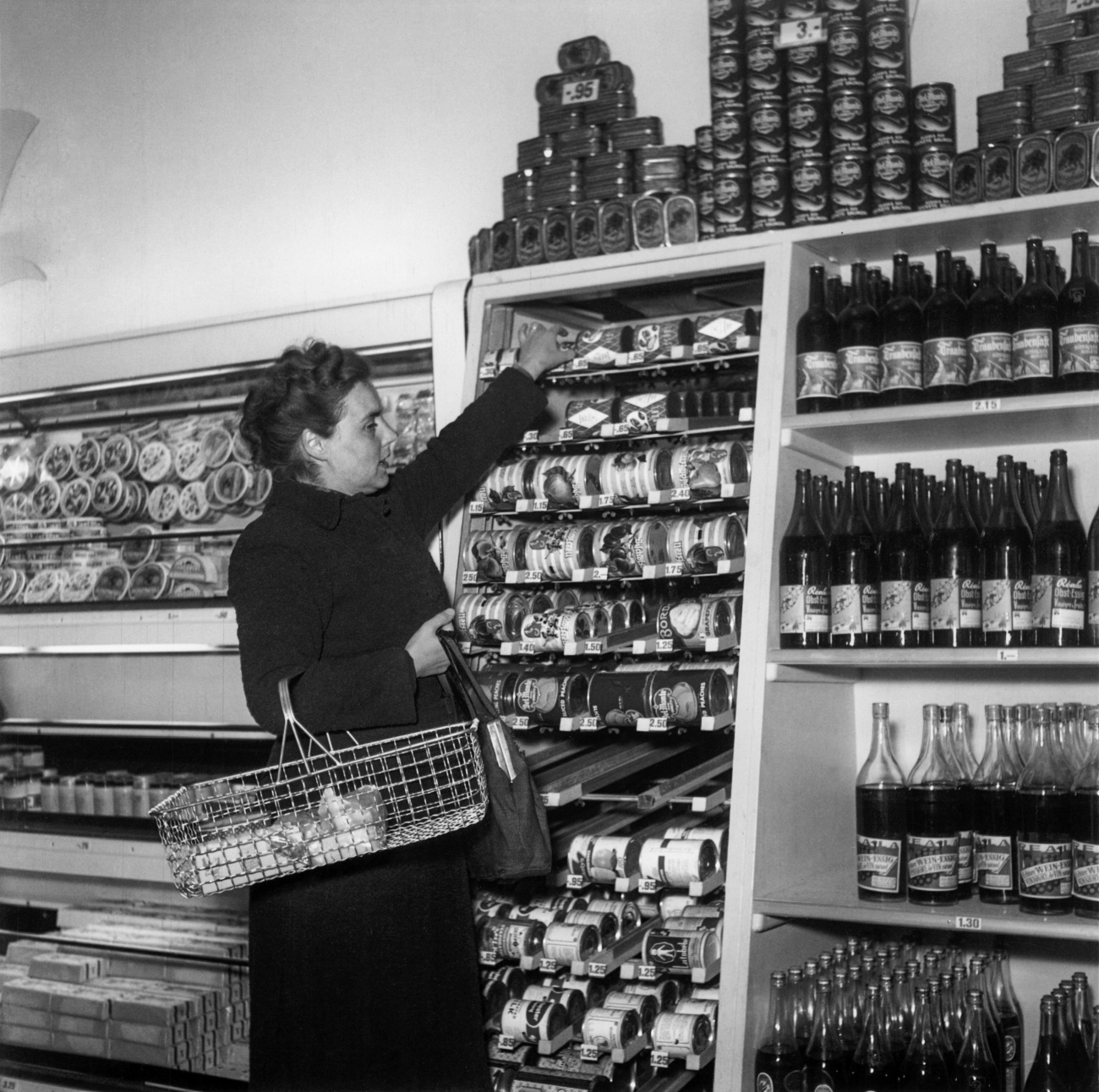
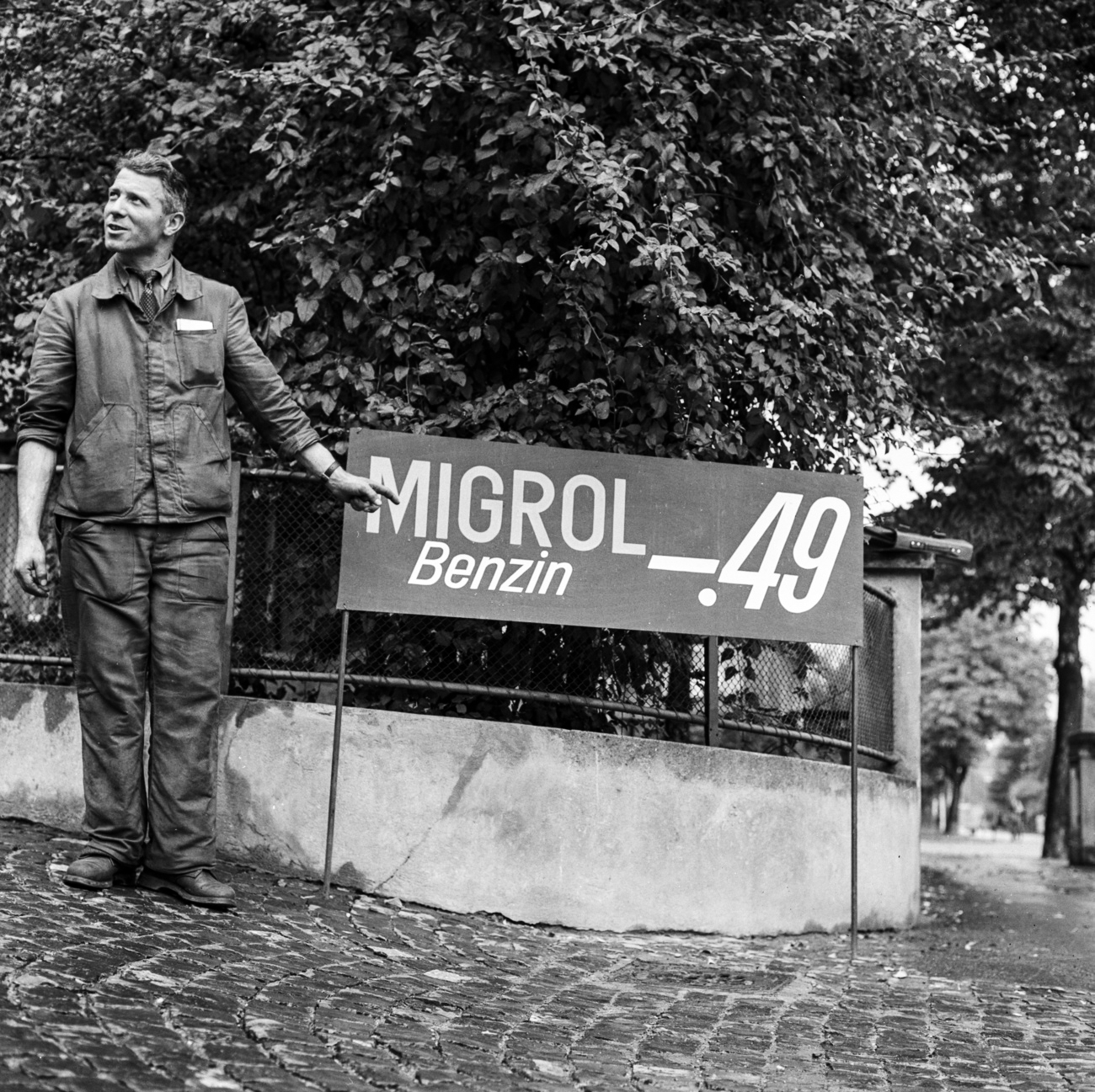
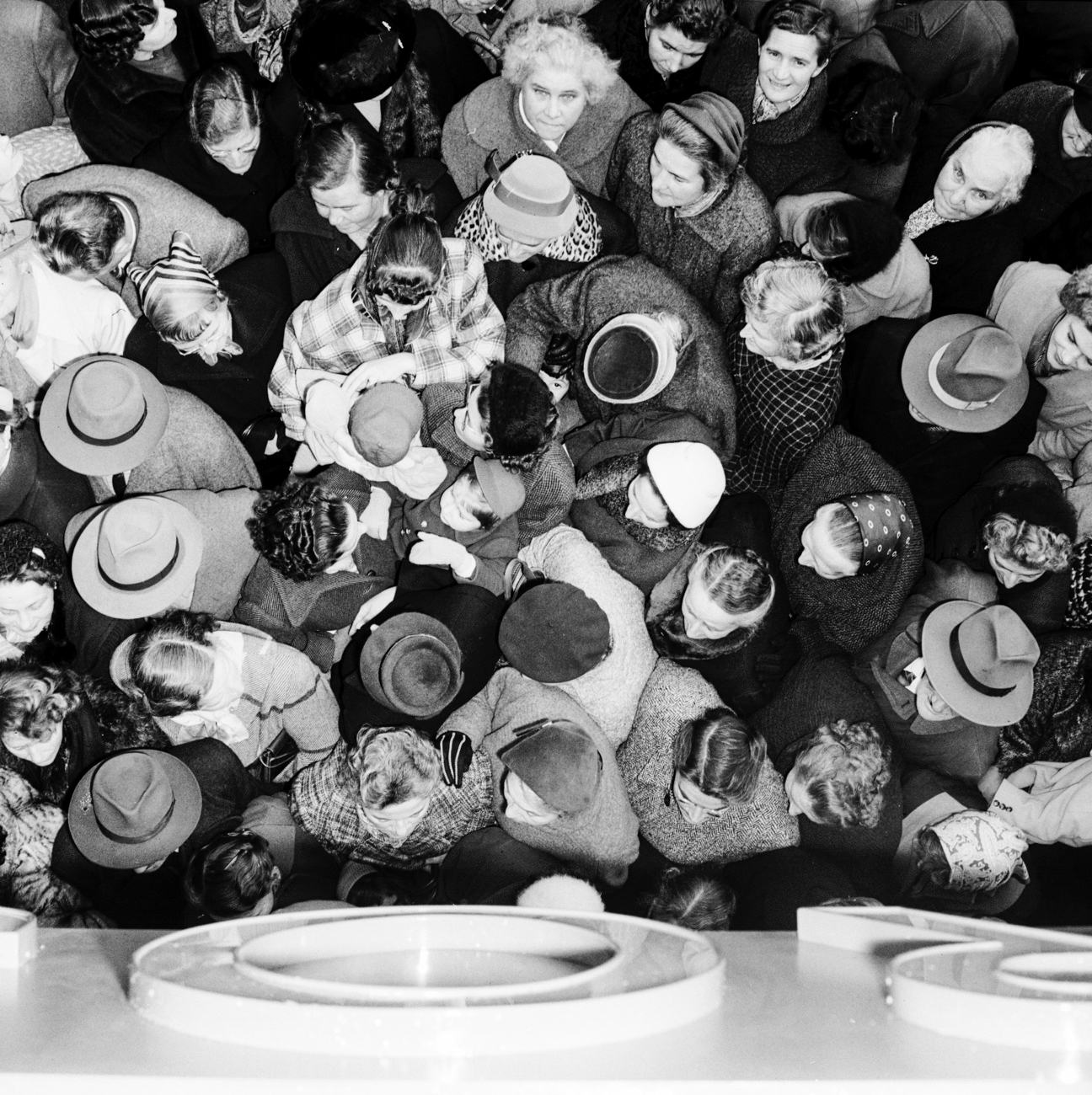
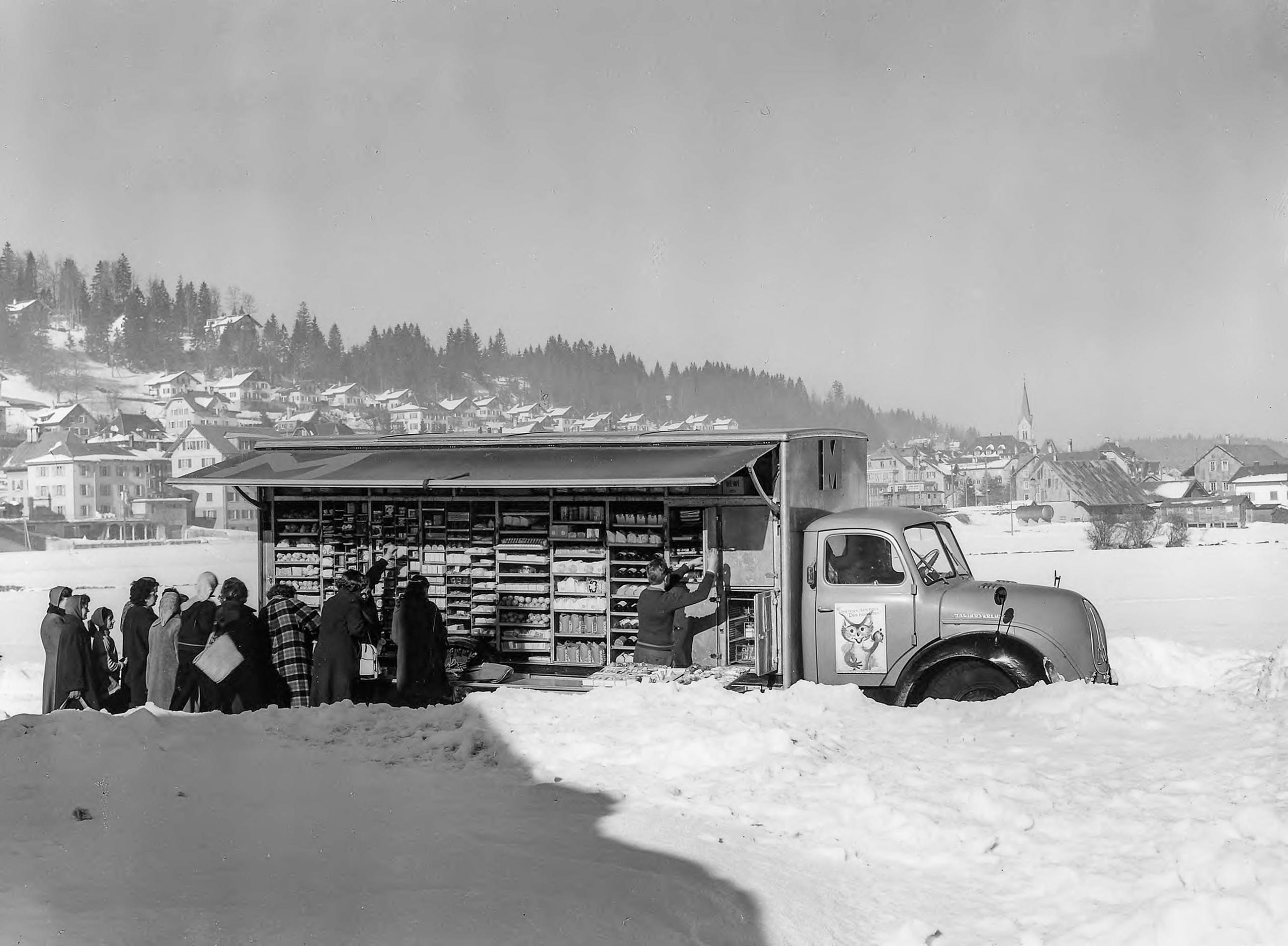
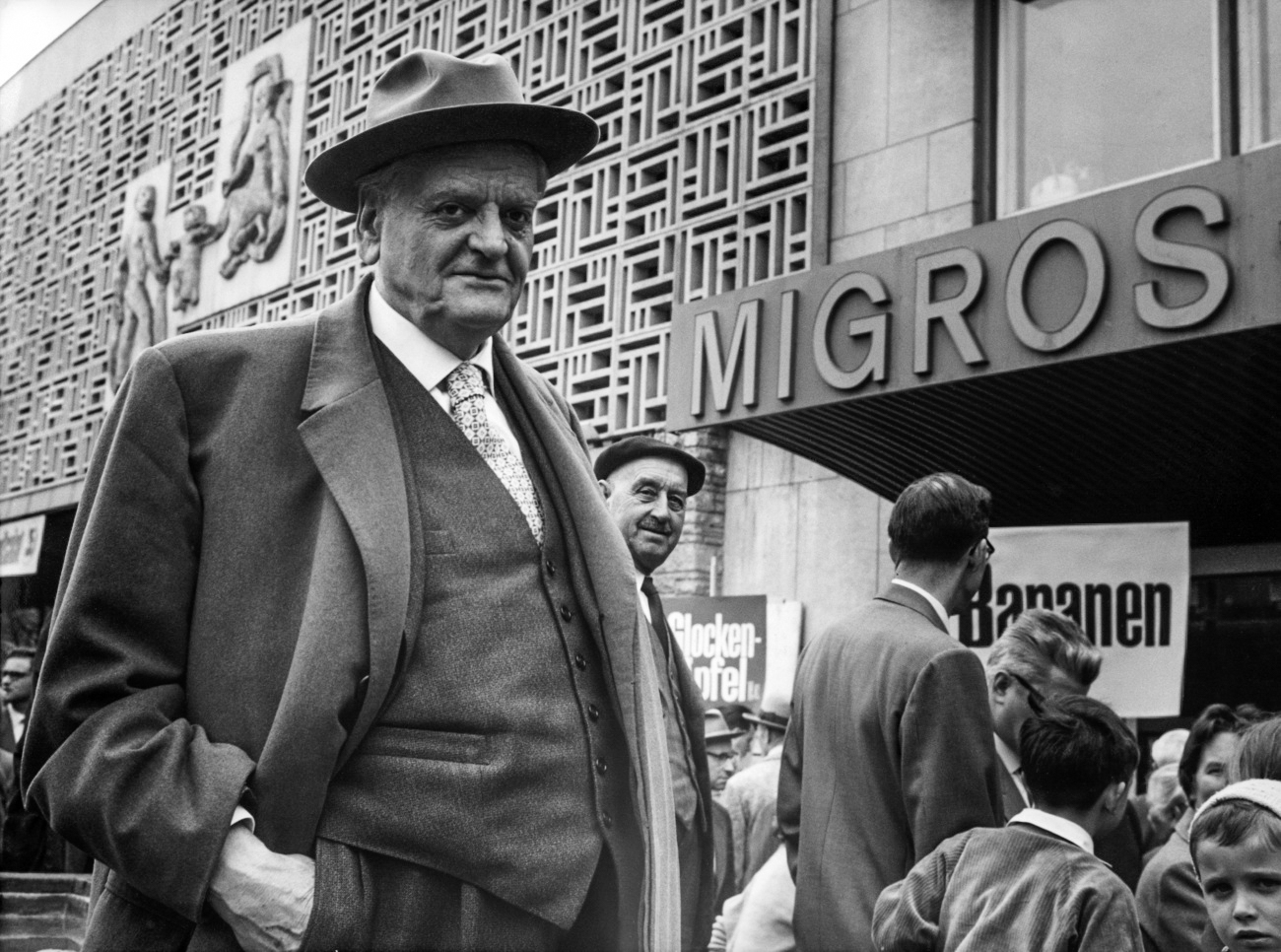
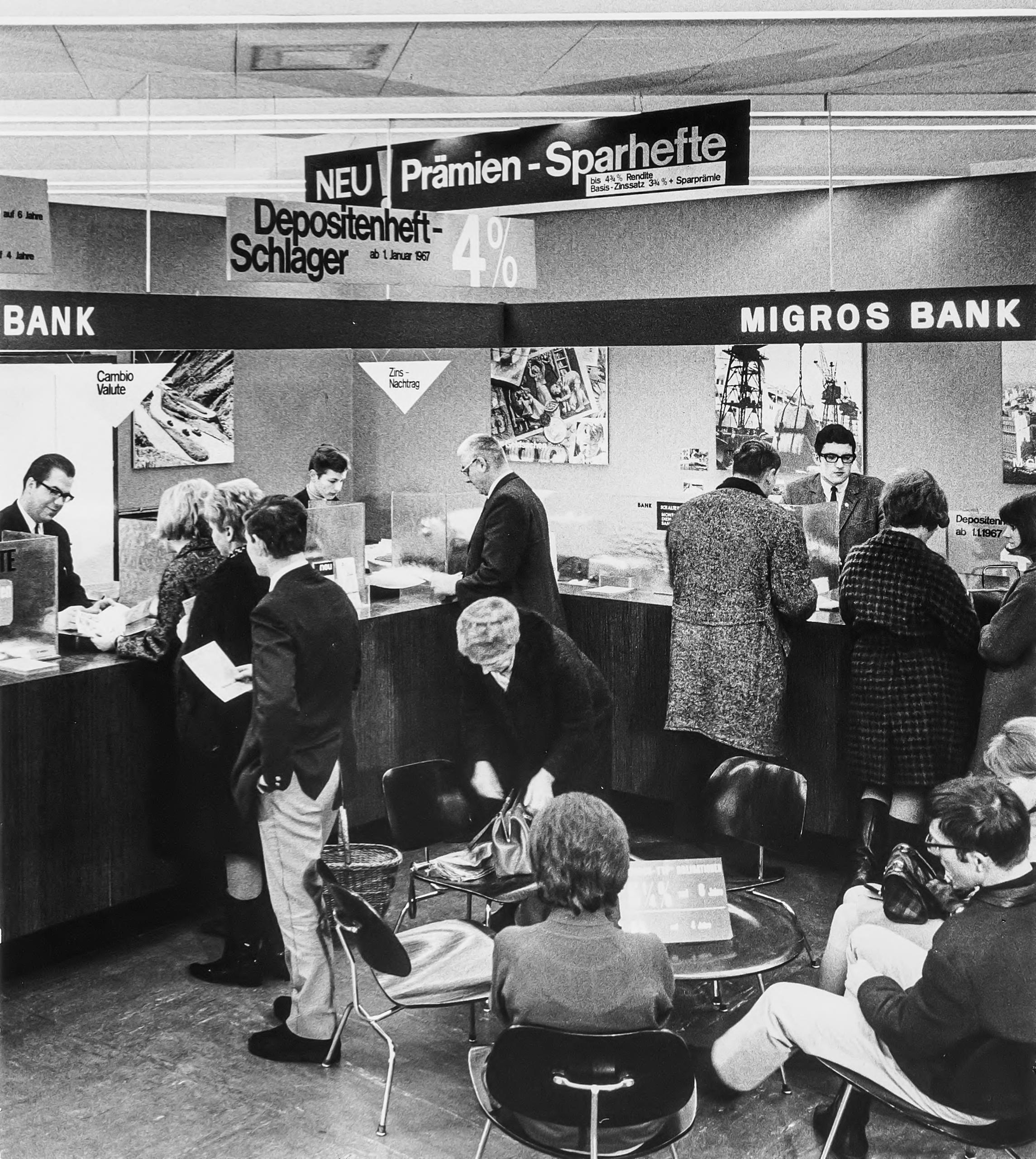
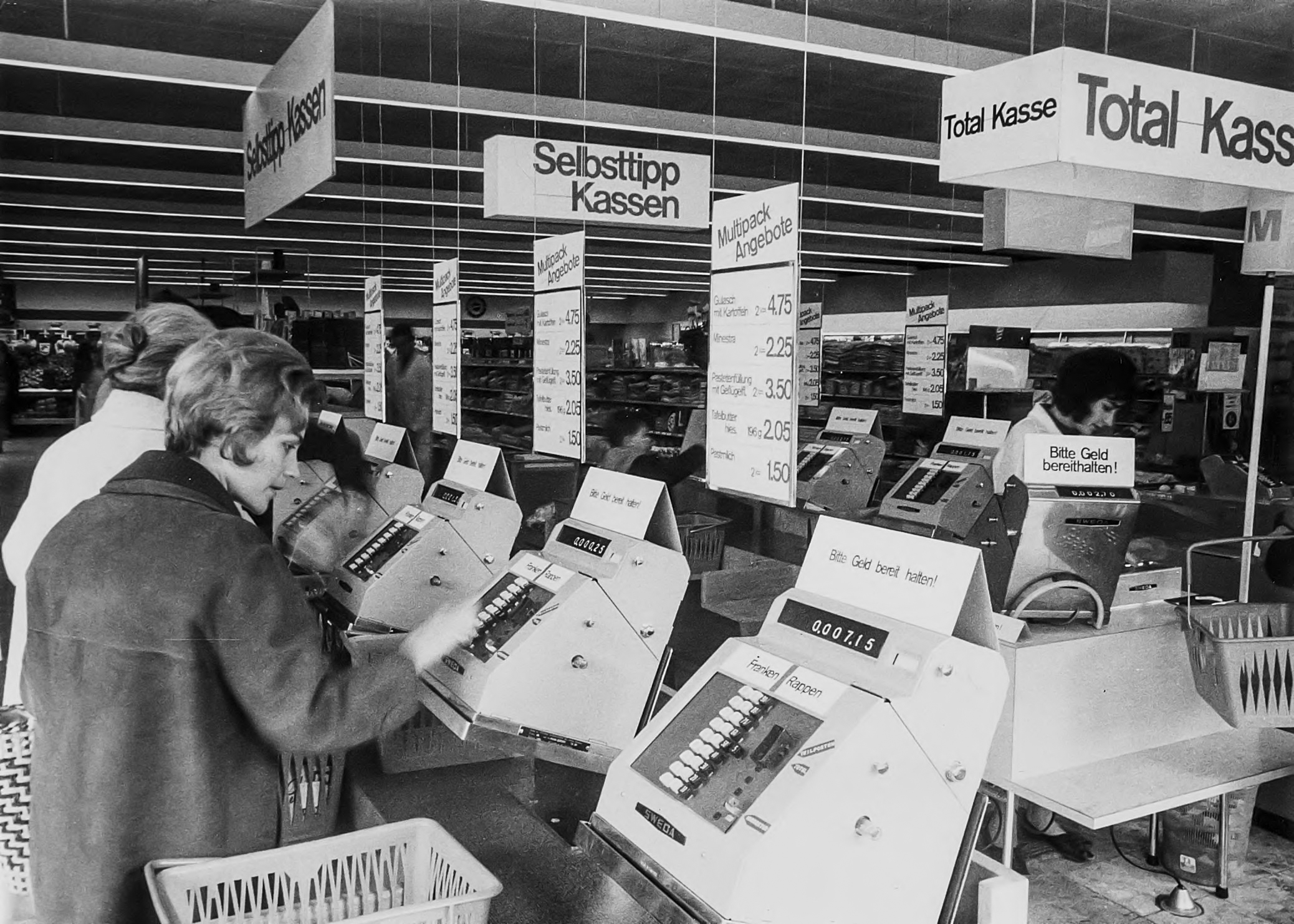
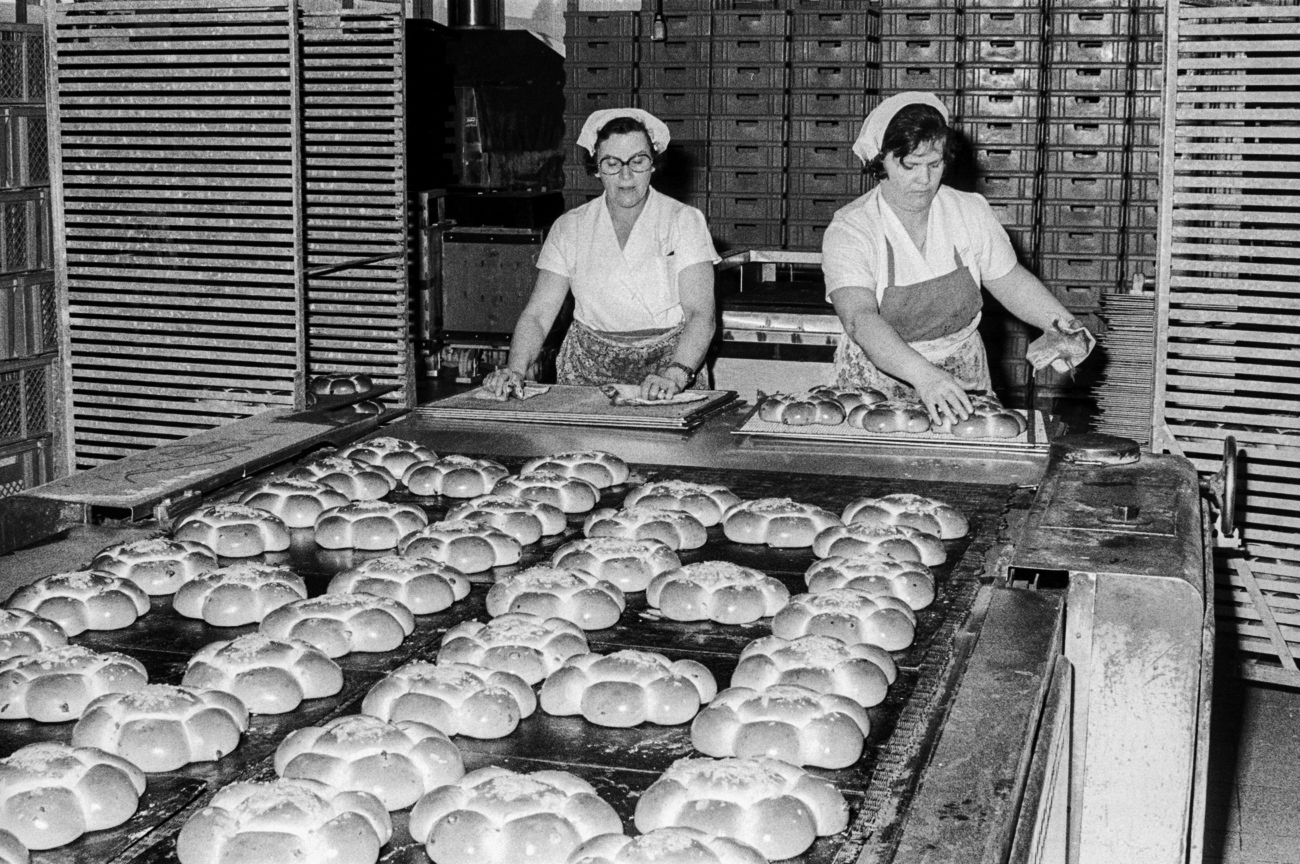
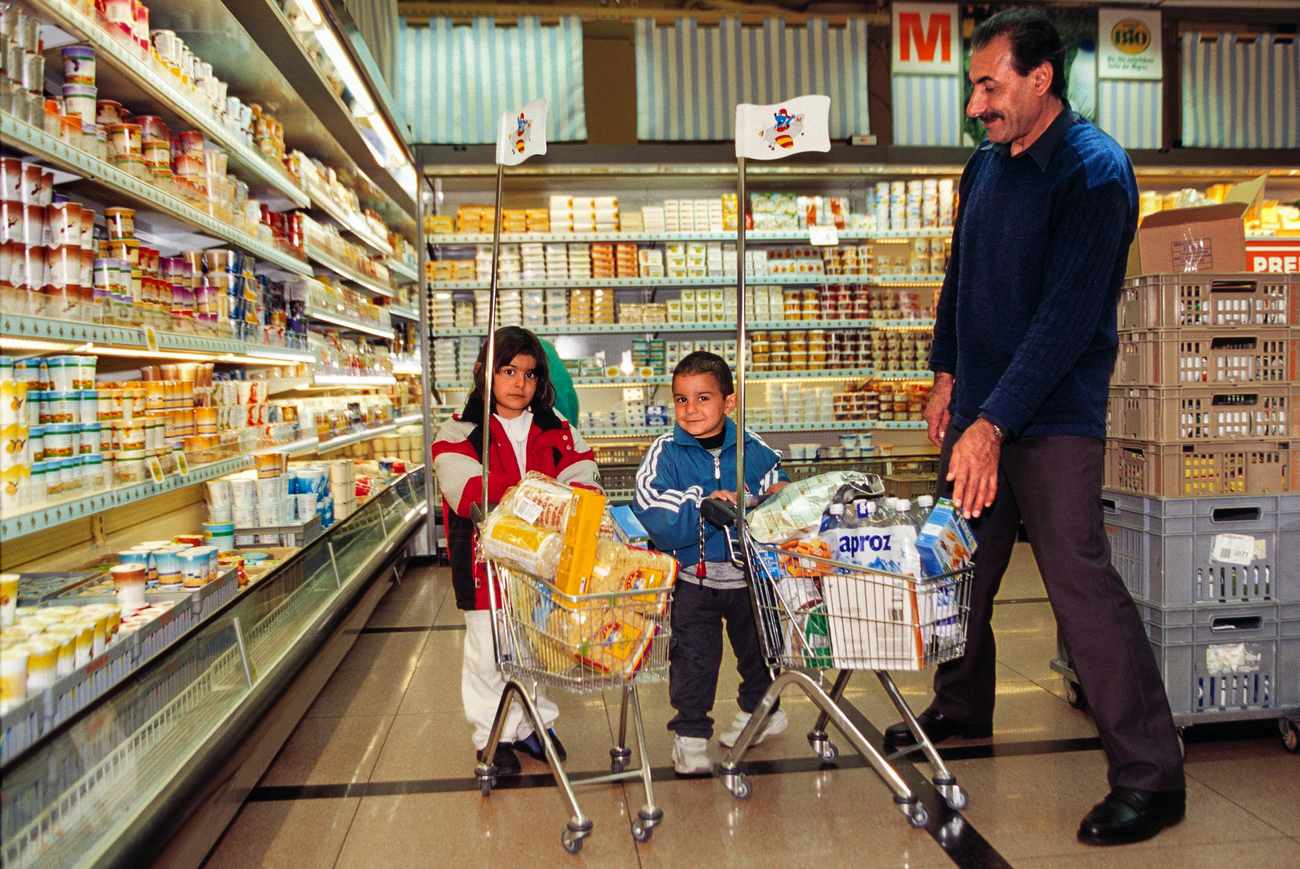
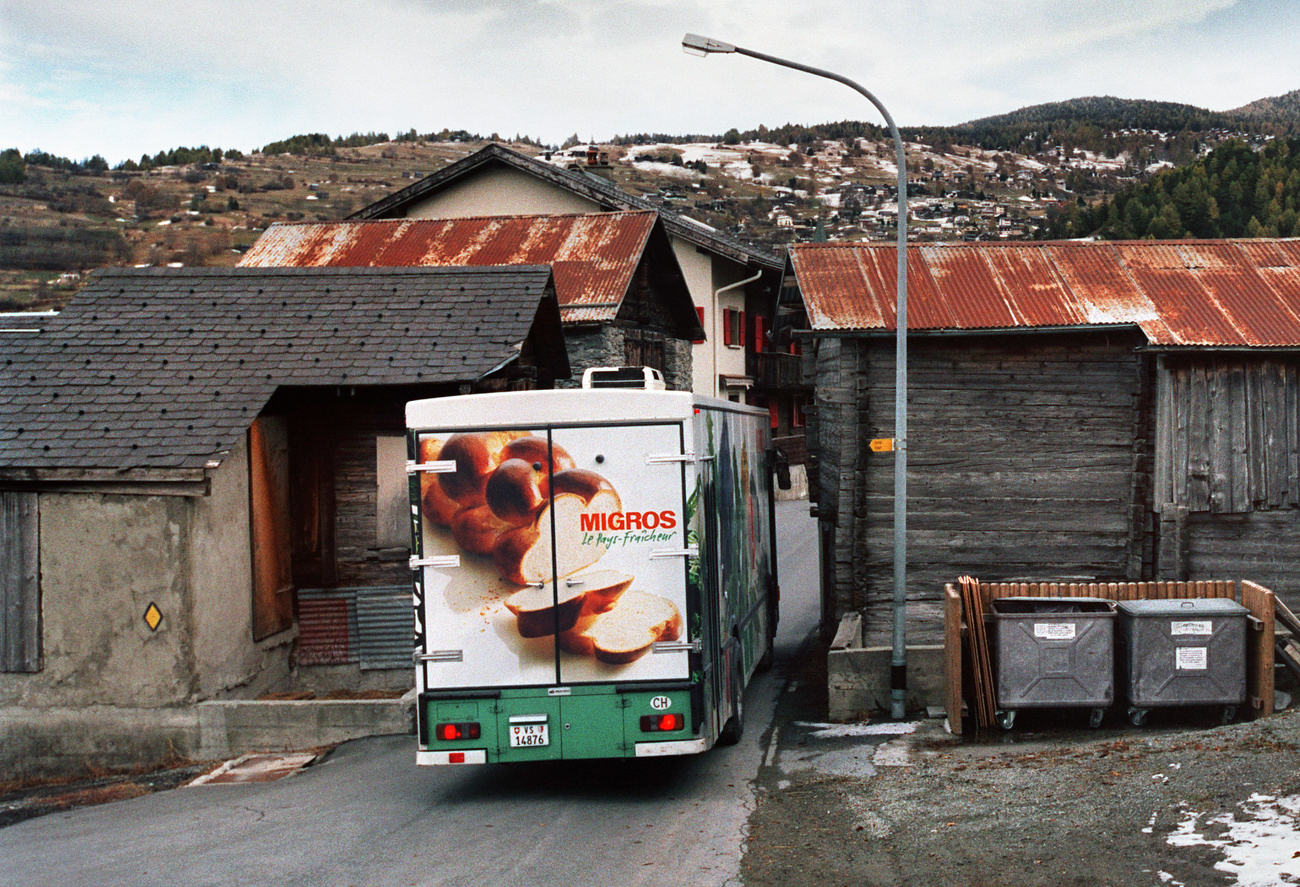


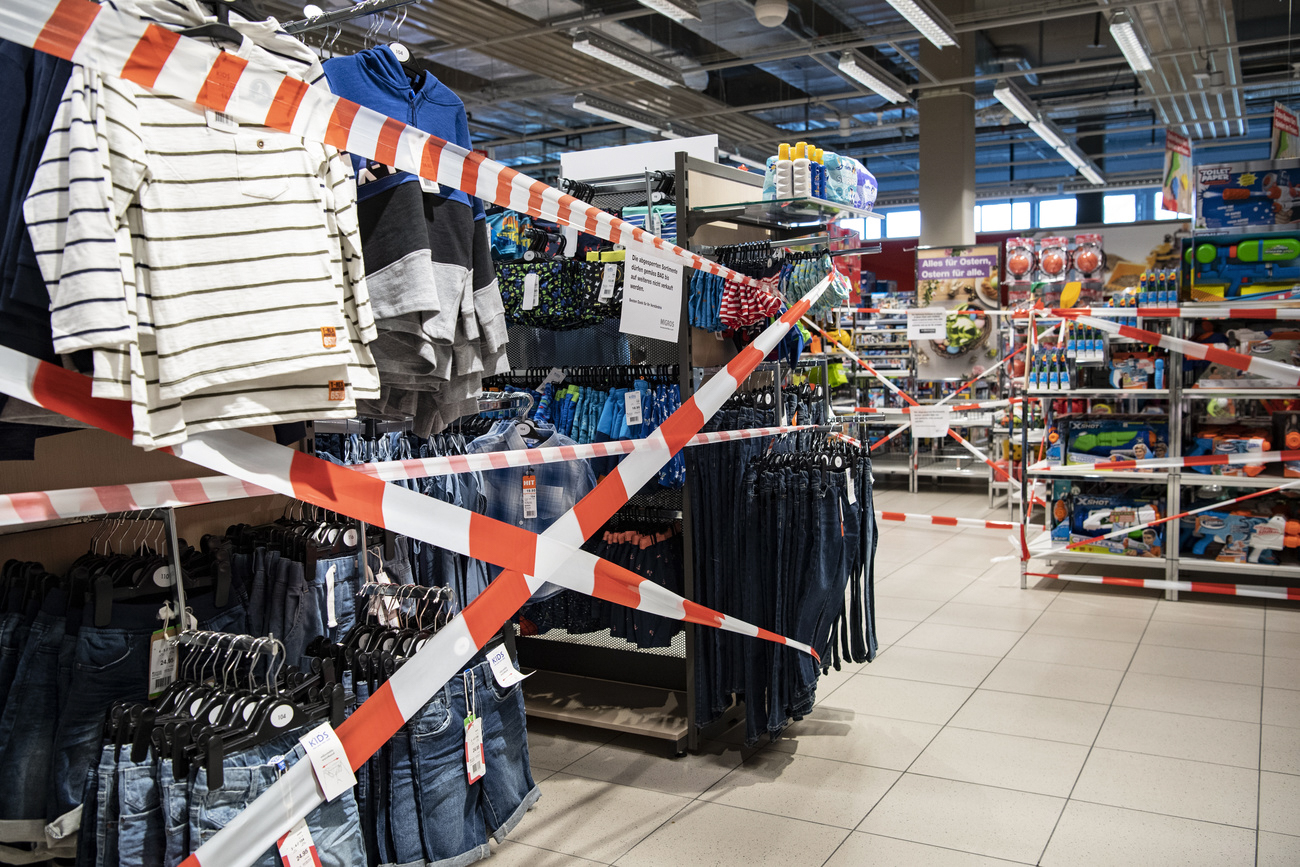
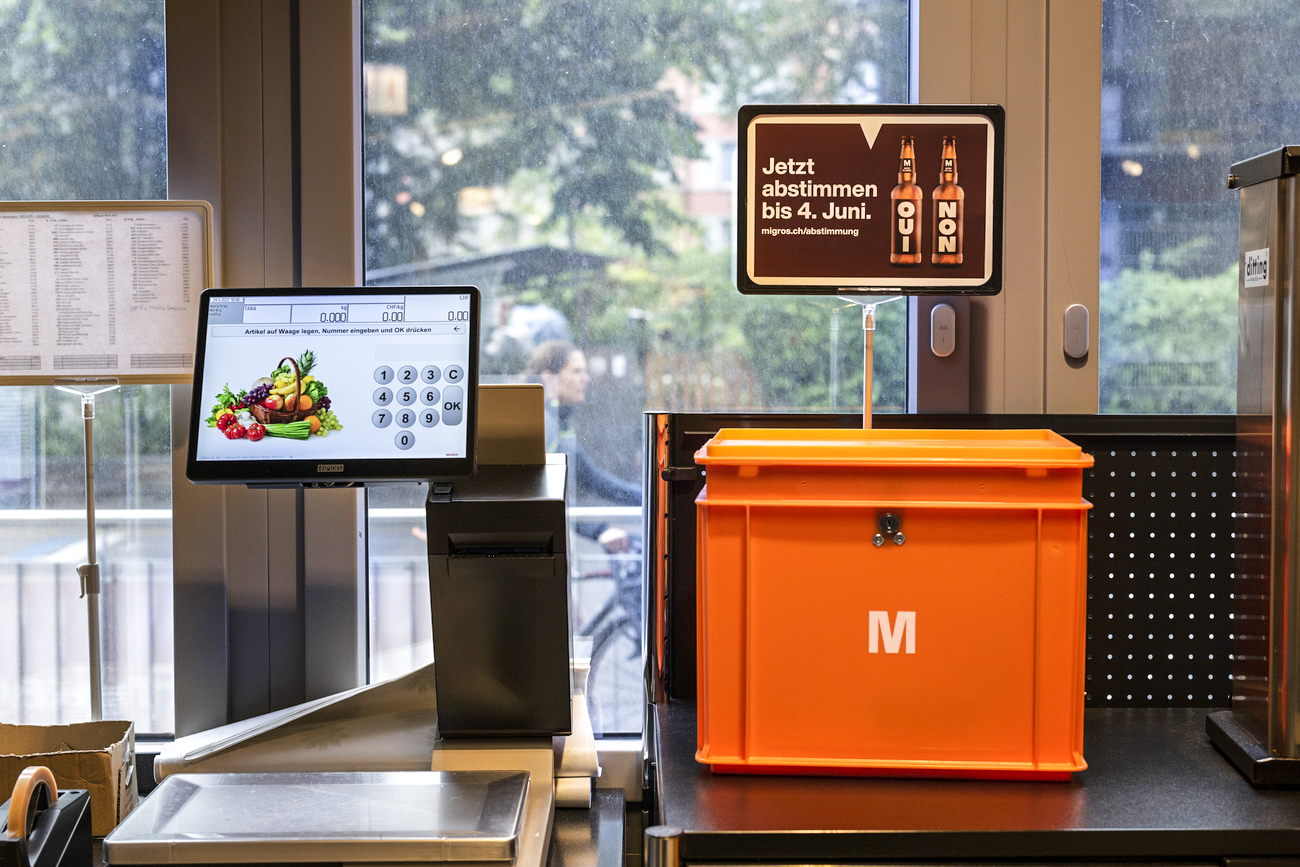

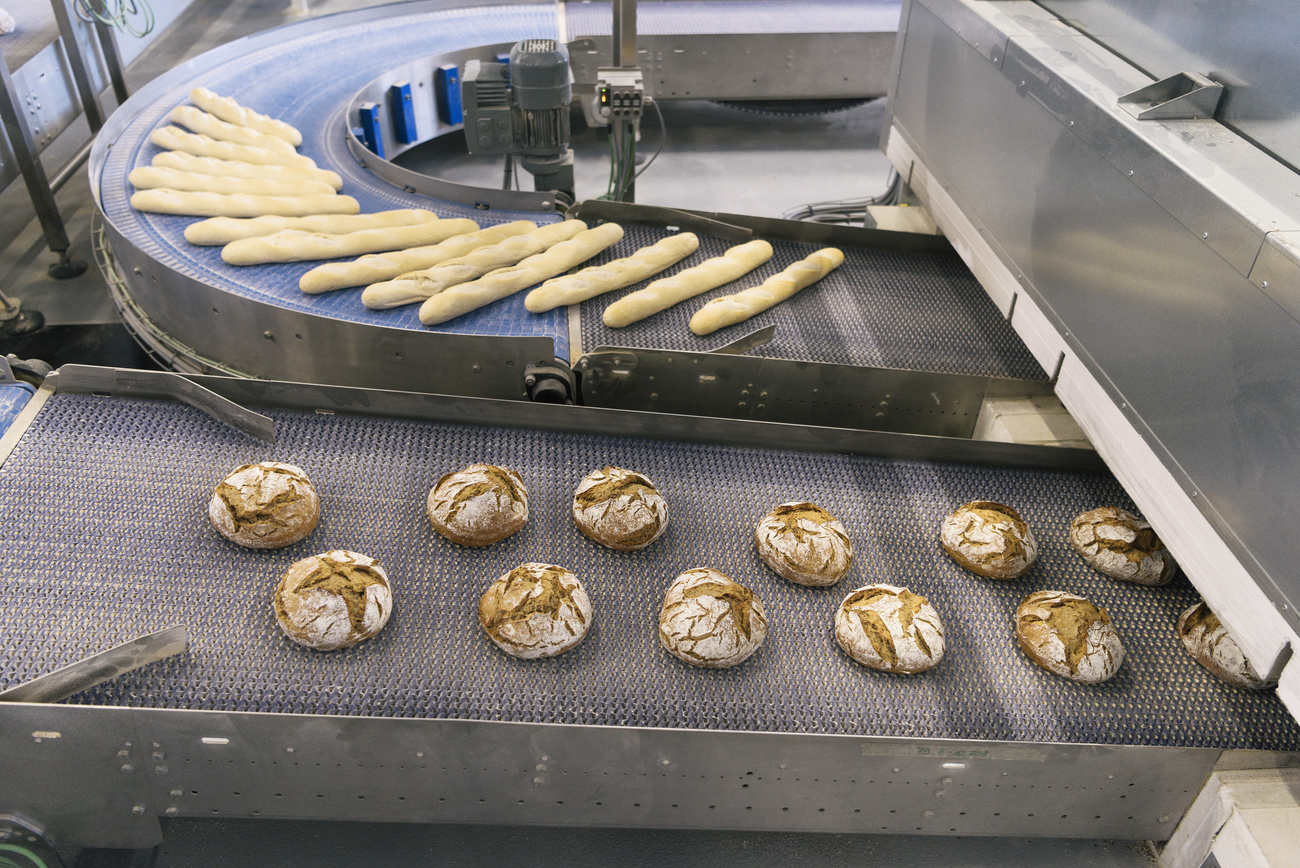

You can find an overview of ongoing debates with our journalists here. Please join us!
If you want to start a conversation about a topic raised in this article or want to report factual errors, email us at english@swissinfo.ch.